Attention deficit hyperactivity disorder (ADHD) is a neurodevelopmental disorder characterized by symptoms such as inattention, hyperactivity, and impulsivity. While traditional treatments like medication and therapy remain effective, innovative approaches are emerging to provide holistic and personalized care for children with ADHD.
Neurofeedback Therapy
Neurofeedback therapy is a non-invasive treatment that aims to train the brain to self-regulate its activity patterns. Through real-time monitoring of brainwave activity, children learn to recognize and modify their brainwave patterns associated with ADHD symptoms. Research suggests that neurofeedback therapy can lead to improvements in attention, impulsivity, and hyperactivity levels over time.
Mindfulness and Meditation
Mindfulness and meditation techniques are increasingly being incorporated into ADHD treatment plans. These practices help children develop self-awareness, emotional regulation, and attentional control. By teaching children to focus on the present moment and cultivate a sense of calm, mindfulness practices can complement traditional treatments and improve overall well-being.
Outdoor and Nature-Based Therapies
Outdoor and nature-based therapies offer a unique approach to managing ADHD symptoms. Activities such as wilderness therapy, adventure therapy, and nature walks provide opportunities for children to engage in physical activity, connect with nature, and reduce stress levels. Research suggests that spending time outdoors can enhance attention, reduce impulsivity, and improve mood in children with ADHD.
Dietary Interventions
Dietary interventions focus on identifying and eliminating foods that may exacerbate ADHD symptoms, such as artificial additives, preservatives, and food sensitivities. Additionally, incorporating nutrient-rich foods like omega-3 fatty acids, fruits, vegetables, and lean proteins can support brain health and cognitive function. While more research is needed, some studies suggest that dietary changes may have a positive impact on ADHD symptoms in children.
Parent Training and Support
Parent training programs aim to educate parents about ADHD and teach them effective parenting strategies to manage their child’s symptoms. By providing parents with the tools and support they need, these programs empower them to create a supportive and structured environment for their child. Additionally, support groups offer parents the opportunity to connect with others facing similar challenges and share experiences and resources.


